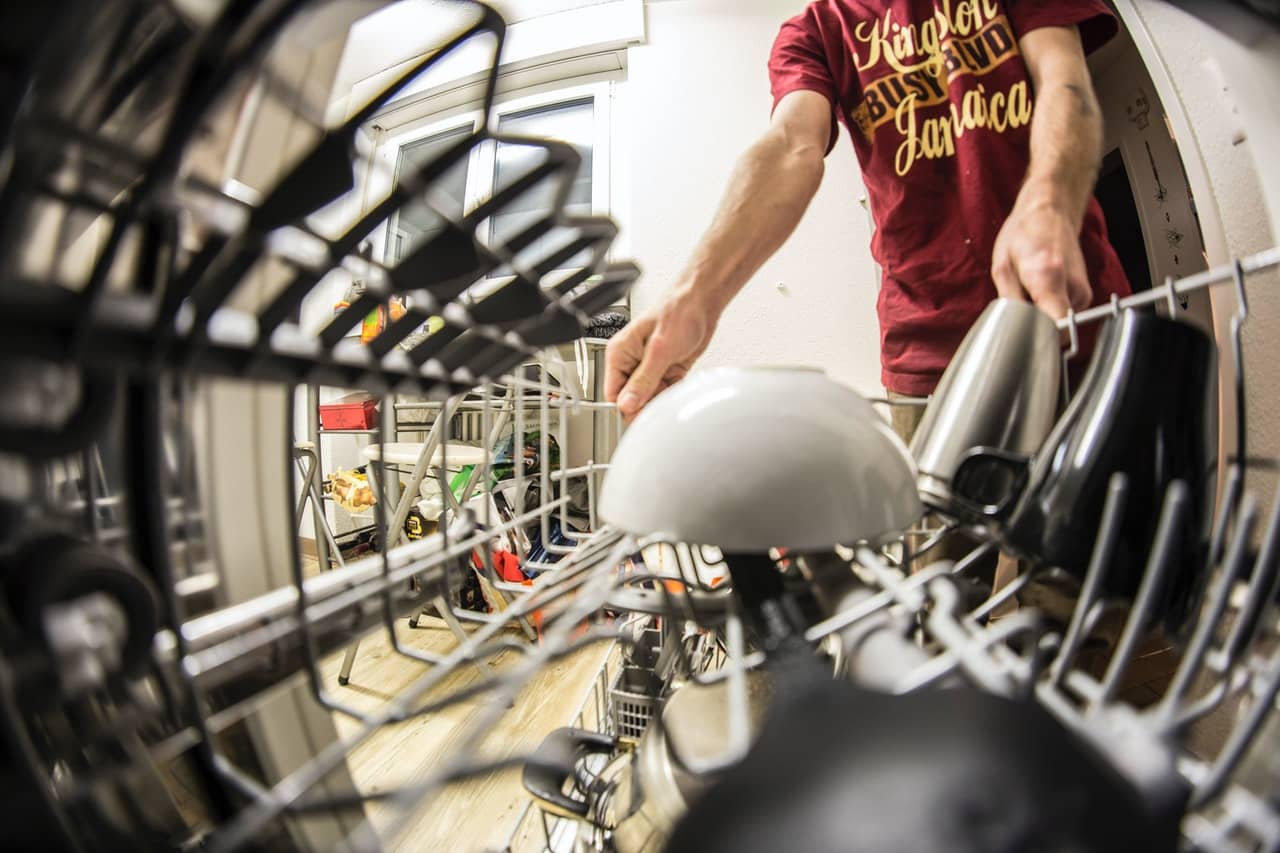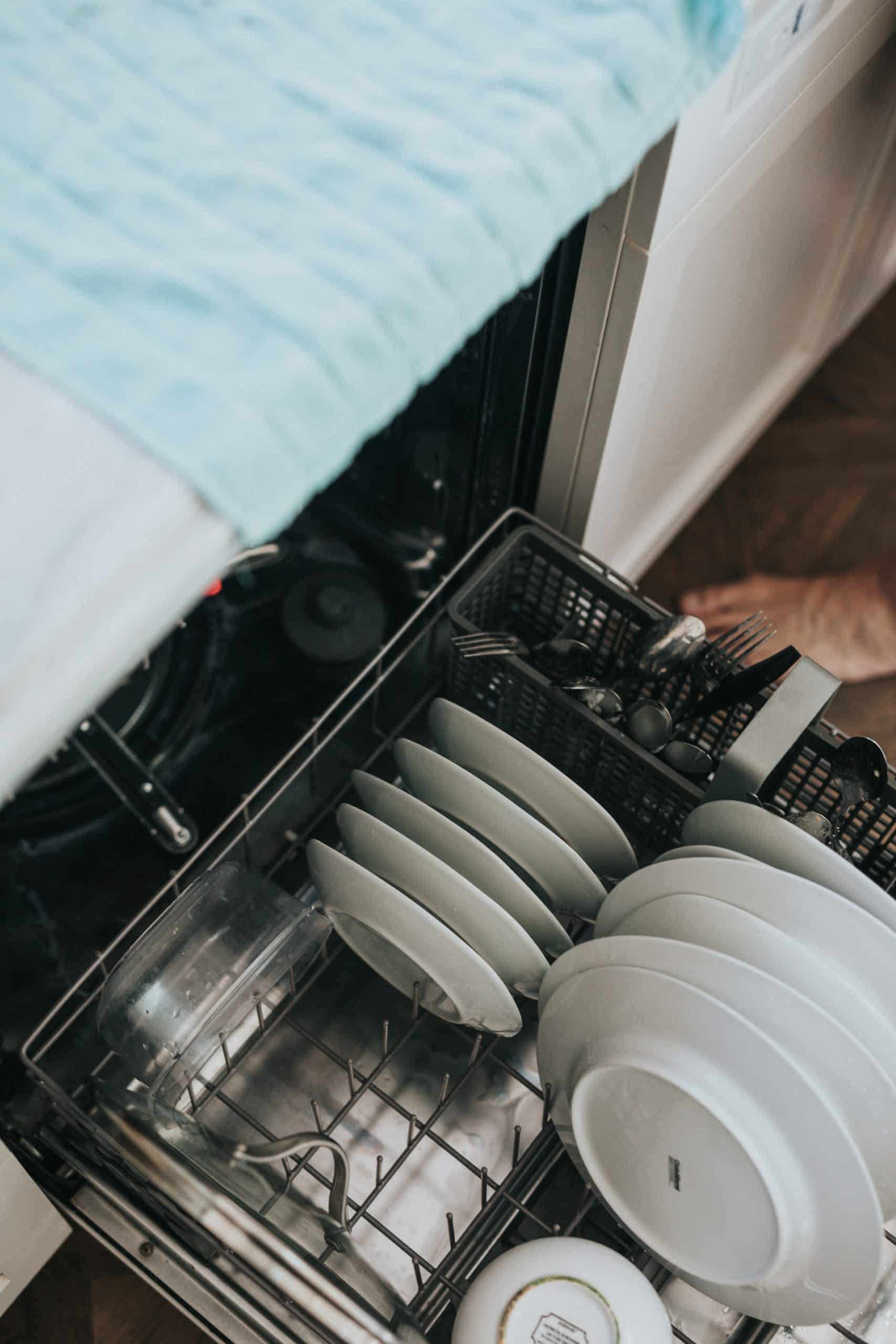Over the last few decades, households and commercial establishments have become increasingly reliant on dishwashers in their daily lives. For businesses, in particular, so reliant they have grown on dishwashers in commercial applications, that breakdowns have a massive impact on their day-to-day operations.
You can only imagine the commotion that ensues within a busy kitchen when a dishwasher responsible for cleaning hundreds, and sometimes thousands of dishes per hour breaks down. The sobering fact is that, sooner or later, a breakdown will occur. Are you prepared? What will you do? Are there steps you can take, to save money and get your dishwasher up and running quickly?
Fortunately, there are, and I’m going to step through some of those steps with you today and explain how you can quickly and efficiently unclog your dishwasher when it stops draining. Not only that, but I’m also going to step you through some of the other faults which occur so you know how to fix your washer quickly and easily, and know when it’s time to call a qualified repair service technician.
IMAGE: PEXELS
What Is A Dishwasher?
A dishwasher is an appliance for the automatic cleaning of dishware and cutlery. It works by spraying a mixture of hot water and detergent to the dishes. After the wash cycle, the mixture is drained, and the rinse cycle starts. In the rinse process, the machine uses a combination of hot water and rinse-aid to spray the dishes. After the cycle, the mixture is drained, and the utensils are dried.
Dishwashers are more hygienic and clean dishes more efficiently. There are several benefits to owning a dishwasher. One of the most significant advantages is convenience as you don’t have to manually hand wash your dishes, which is especially tasking in large households. Dishwashers are also used for commercial purposes such as a cafe, restaurant or bar.
Steps To Follow When Your Dishwasher Does Not Drain
If you have a dishwasher draining issue, don’t panic, there are some simple checks you can do before you call a qualified repairer to fix the issue and save money. Some checks you can make are;
- Run the dishwasher’s disposal system – Dishwasher blockages can be due to an air gap in the connecting hose or disposal system. By running the system, it may eliminate clogged waste and air in the hoses.
- Inspect your appliance for clogs or blockages – Remove the kickplate of your dishwasher and check the drain hose for food waste or other items are blocking the water flow. If the drain is blocked, remove the debris by blowing through the hose or use a wire hanger.
- Load the dishwasher properly – Make sure you are loading your dishwasher correctly. Check with your owner’s manual on how to load your appliance correctly.
- Check the filter and clean or change it if necessary – A dishwasher not draining issue could be due to a clogged filter. Read your manual to find the location of the screen and clean it if blocked.
- Check the drain valve – Inspect the drain valve at the bottom of your machine for possible malfunction. Make sure it moves freely by pushing on it.
- Inspect the drain basket – A dishwasher not draining problem could be due to a blocked drain basket, which is usually located at the bottom of the side of your machine. Check and clean or unclog the brain basket, if necessary.
- Run your machine and listen to its operating sounds – If your dishwasher is making a clicking or humming noise, you may need to consult a reputable technician. Your dishwasher’s drain pump and the motor could be malfunctioning and need replacing.
Other Common Dishwasher Issues
Often locating the cause of a problem on your dishwasher can be difficult. Below we have listed some of the typical dishwasher problems which may arise from time to time. If you do not feel capable of resolving the problem yourself, we recommend calling a qualified service agent. Some of the common issues are;
- Dishwasher smells – Trapped, rotting waste food is the likely cause. Check your machine and thoroughly remove all debris. You should check your washer’s screen located at the bottom and clean it.
- Unusual noises – If your appliance has become noisier and noisier late, malfunctioning internal parts could be the culprit. Check wash arm, damaged seals and bearing rings, and malfunctioning pump or motor. It is best to consult with a technician if you experience these issues.
- Dishwasher does not run – Inspect your power source for a potential blown fuse. You may also check your washer’s door if it is properly closed and the door sensor. The door is designed to detect if it is appropriately latched or locked for safety purposes. The washer’s motor could also be ceased. Try to spin the fan motor with your hand and see if it moves smoothly. Make sure your machine is unplugged before doing this check to avoid possible electrocution or injury.
- Dishes are not clean – If your dishes come out with residues or still dirty, make sure you are not overloading your machine. Ensure your scrape leftover foods before loading your plates and other dishware. Also, check the spray arms to make sure they are clean and function properly.
You may inspect the door gasket and strain screen for debris, grease, or clogs, and remove them. If your dishes have water spots, you may use a rinse aid to resolve the issue. If the plates and glasses have white residues, it could be due to hard water. Use a water softener or a detergent to soften the water and resolve the issue.
Routine Dishwasher Maintenance To Avoid Costly Repairs
Periodic cleaning and maintenance of your dishwasher help ensure its smooth operation and longevity. Here are some tips on how to properly maintain your washer in tip-top condition:
- Run your machine regularly – Using your appliance often helps prevent the buildup of food waste and other debris in your washer. You may also run it empty on short cycles from time to time.
- Switch on your garbage disposal before running your dishwasher – Running your garbage disposal first prevents the accumulation of waste that could clog your washer drain line in the future.
- Use vinegar to clean your dishwasher periodically – To do this, put two cups of vinegar in the bottom of your washer and run it on an energy-saving mode for a few seconds. Stop your machine and allow the vinegar inside for 15-20 minutes.
- Use a mild spray cleaner to clean the front of your washer after use – Wipe it with a soft cloth or sponge, particularly the handle, the controls, and the ledge between the panels to prevent the accumulation of dirt.
- Check and refill your washer’s rinse aid dispenser for at least once a month – A rinse aid helps ensure the cleanliness of your dishware and cutlery. When refilling the dispenser, read the direction of using the product or your washer’s manual for proper refilling.
- Conduct a deep cleaning of your washer every 1-3 months – To maintain the cleanliness and smooth operation of your machine, deep clean it periodically. It will prevent the accumulation of debris, moulds, mildew, and food waste in your washer. It will also avoid rust stains and corrosion buildup in your machine.
Dishwasher Safety Tips
To avoid unwanted accidents or injuries and ensure the proper operation of your washer, you should observe appropriate safety operational practices. Here are some safety precautions to consider:
- Your appliance uses hot water to clean your dishes properly. Always exercise caution when handling hot tap water, especially with your young kids, to avoid possible scalds and burns.
- Put your detergent and other household cleaning products in areas that are inaccessible to toddlers to prevent accidental ingestion.
- It’s a good idea to ensure all containers are empty and put in a covered receptacle before disposing of them.
- Refrain from storing your household cleaning products near food items to prevent contamination or accidental use.
- Ensure that there are no detergent residues in your dishwasher’s dispenser cups. Check the cups after each cycle and clean them, if necessary.
- Always keep the dishwasher detergent in its original container.
- Avoid mixing the detergent with other cleaning products to prevent possible irritating fumes.
- Put your glassware in the dishwasher carefully to avoid breakage or chipping. Avoid overloading your machine.
- Put sharp utensils, like knives, in the utensil basket with their points down.
Conclusion
Dishwashers offer massive time-savings for residential and commercial applications and have become a primary staple in the majority of homes and hospitality businesses for this reason. Regular maintenance and cleaning of your dishwasher will prevent unnecessary outages and increase the longevity of your machine. Getting to know your dishwasher can save you from a lot of unnecessary anxiety and money if you’re able to fix any issues as they arise and save money.
If you are interested in even more technology-related articles and information from us here at Bit Rebels, then we have a lot to choose from.


COMMENTS